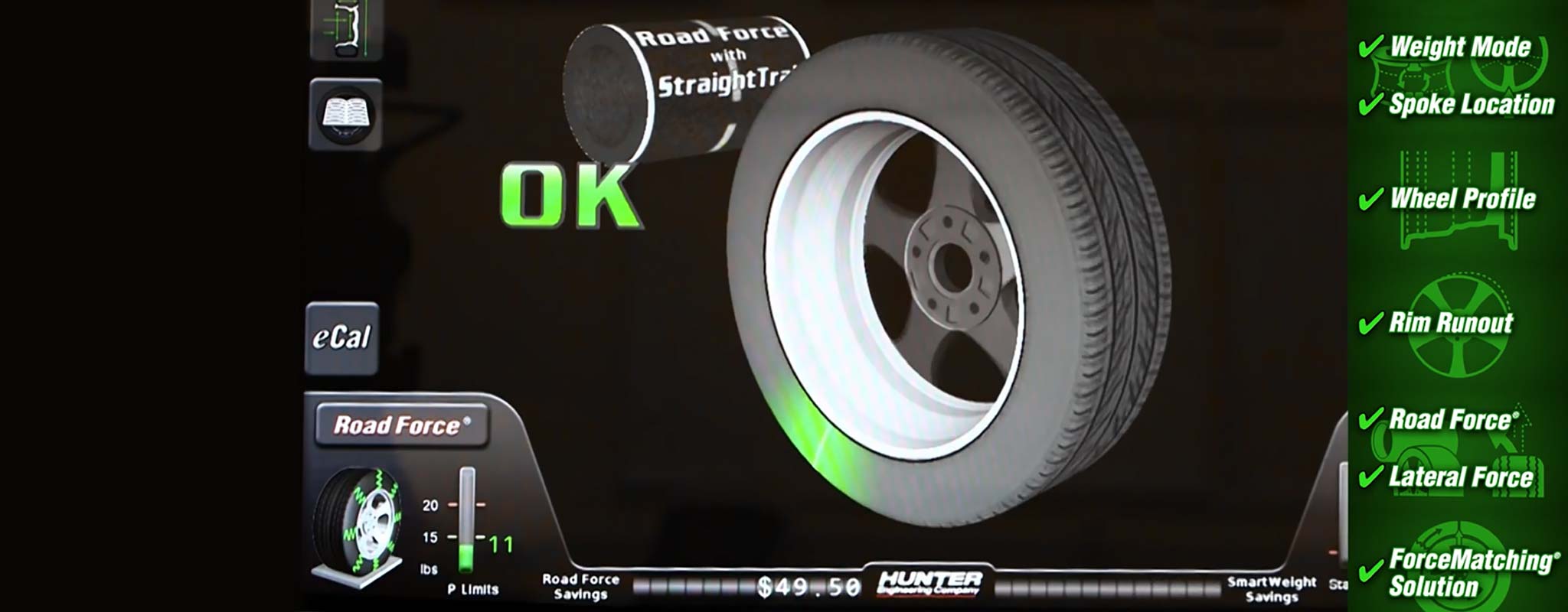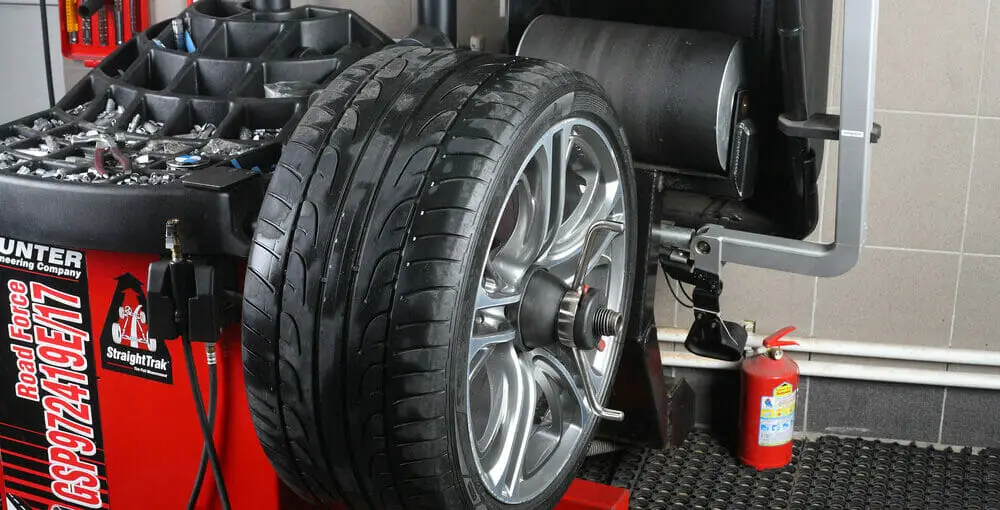Do They Balance Tires When They Rotate Them
When you take your car in for a routine oil change or tire rotation, the mechanic will likely check the air pressure in your tires and refill them if necessary. But do they balance tires when they rotate them?The answer is no, they don’t.
Balancing your tires is something that should be done periodically – about once every 6 months or so. When you get new tires, they should be balanced before being put on your car. And if you notice that your car has been vibrating more than usual, it’s likely time to get your tires balanced again.
When it comes to maintaining your car, there are a lot of things that you can do yourself. But there are also some maintenance tasks that are best left to the professionals. Tire rotation is one of those tasks.
Most people know that they should rotate their tires every few months or so. But what many people don’t realize is that when you take your car in for a tire rotation, the technician will also balance the tires. This is an important part of the process because it helps to ensure that your tires wear evenly.
If you’ve never had your tires balanced before, you might be wondering why it’s necessary. The simple answer is that it helps to prolong the life of your tires. When they’re properly balanced, they’ll last longer and perform better.
So if you want to get the most out of your tires, make sure to have them rotated and balanced on a regular basis!
Tire Balance And Rotation Cost
The cost of tire balance and rotation can vary depending on a few factors. The type of vehicle you drive, the size of your tires, and where you have the work done are all things that will affect the price. Most passenger vehicles will need their tires balanced and rotated every 5,000 miles or so.
This is to ensure even wear on all four tires and to prevent any one tire from becoming too worn down. If your car has front-wheel drive, it’s especially important to keep up with this maintenance because the front tires do most of the work. The average cost for tire balance and rotation is between $40 and $60.
However, if you have a larger vehicle or specialty tires, the price can go up to $100 or more. You can usually get this work done at a local tire shop or auto repair garage. Many places will even include it in a routine oil change package.

Credit: www.lesschwab.com
How Often Should I Rotate My Tires
It is important to rotate your tires regularly in order to extend their life and ensure even wear. Depending on your vehicle and driving habits, you should rotate your tires every 5,000 to 8,000 miles. If you drive frequently on rough roads or in adverse conditions, it is recommended that you rotate your tires more often. You can check your owner’s manual for specific recommendations.
What are the Benefits of Rotating My Tires
The benefits of rotating your tires are many and varied. Perhaps most importantly, it helps to prolong the life of your tires by evening out their wear and tear. Additionally, it can improve your gas mileage since properly inflated and aligned tires can reduce rolling resistance. Rotating your tires can also help you maintain better control of your vehicle, and may even improve its resale value.
Will Balancing My Tires Help Them Last Longer
It’s common for drivers to believe that keeping their tires balanced will help extend the life of the tire. While it’s true that maintaining proper balance can help prevent premature wear, it’s not the only factor that determines how long your tires will last.Tire balancing is the process of equalizing the weight around a tire and wheel assembly so that it spins smoothly.
This is typically done by adding small weights to either side of the wheel until the assembly is balanced.If your tires are unbalanced, it can cause them to wear unevenly. This can lead to premature treadwear and decreased tire life.
In some cases, it can also cause vibrations when driving, making for an uncomfortable ride.So, while maintaining proper balance is important for prolonging tire life, other factors such as inflation levels, alignment, and rotations are also key in getting the most out of your tires.
How Do I Know When My Tires Need to Be Rotated
Tire rotation is vital to the longevity and performance of your tires. Here are a few things to keep in mind when considering tire rotation: How frequently to rotate your tires depends on many factors, including the type of vehicle you drive, how you drive, and the kind of tires you have.
For instance, all-wheel drive vehicles typically require more frequent tire rotations than front-wheel drive vehicles. The best way to determine how often to rotate your tires is to consult your car’s owner’s manual or ask a professional at a reputable tire or auto shop. Another thing to keep in mind is that not all tires wear at the same rate.
Typically, the front tires on a car experience more wear than the rear tires because they bear more of the weight of the vehicle and they also do most of the work when it comes to steering and braking. As such, it’s common for people to rotate their front and rear tires together (swapping them from one side of the car to another) so that they can evenly distribute wear and tear. This isn’t always possible or necessary, however; sometimes it’s betterto simply swap out two worn front tires for two new ones rather than rotating all four.
There are a few different ways you can tell if your tires need rotated:
Uneven Tire Tread – Take a look at each tire’s tread depth using a penny test or tread depth gauge; if there is significant differences in tread depth from one tire to another, it’s time for a rotation.
Cupping or Scalloping – If you notice that your car has begun vibrating excessively or making unusual noise while driving, uneven tread wear may be causing “cupping” (small dips/hollows in the tire surface)or “scalloping” (raised areas along the edge of each lug). These problems can be remedied with a tire rotation.
Can I Rotate My Own Tires
It is possible to rotate your own tires, but it is important to make sure that you do it correctly. Incorrect tire rotation can lead to uneven wear and decreased tire life.There are a few things to keep in mind when rotating your own tires:
-The recommended rotation pattern for most vehicles is “front to back” or “side to side.” This means that the front tires are moved to the rear position (or vice versa), and the rear tires are moved to the opposite side of the vehicle.
-However, some vehicles have different rotation patterns depending on whether they are front-wheel drive, all-wheel drive, or rear-wheel drive.
Be sure to consult your owner’s manual for the specific rotation pattern for your vehicle.
-If you have different size tires on your vehicle (e.g., P195/75R14 in the front and P205/70R14 in the rear), you should not rotate them yourself – take them to a professional tire shop instead. They will have the equipment and expertise necessary to properly match up the sizes and rotate them correctly.
Conclusion
When you take your car in for a tire rotation, the technician will also check the condition of your tires and may suggest that you have them balanced. Balancing tires is important because it helps to extend their life and ensures a smooth ride.


